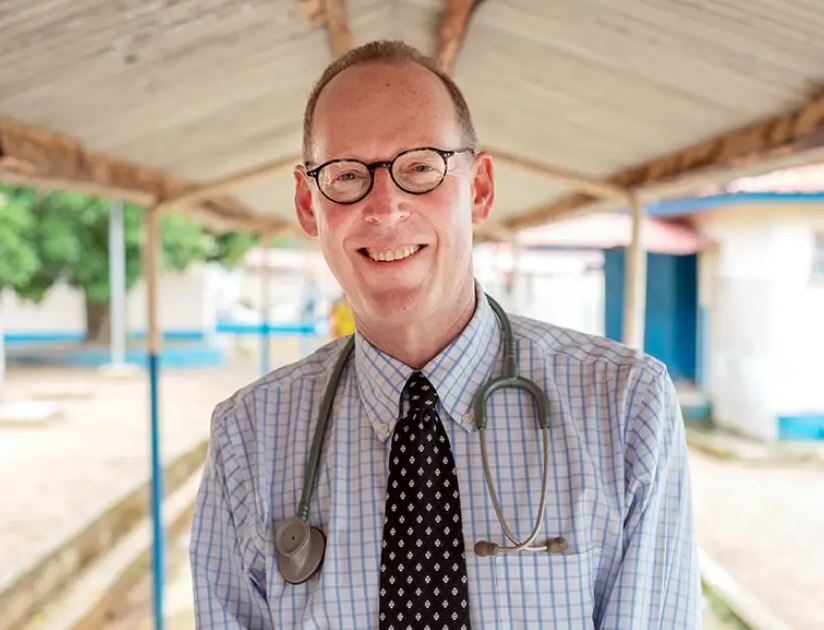Dr. Paul Farmer–a physician, medical anthropologist, co-founder of Partners in Health, advocate for social justice, mentor to many, father to three–died unexpectedly at the age of 62 while visiting a hospital he helped to found in Rwanda. His death is a profound loss for the global health community. In 2016 I wrote about how reading Infections and Inequalities shaped my own thinking about the relationship between personal and social responsibility. I thought about his work often in the past three years as we have navigated conversations about the disproportionate impact of COVID-19 to communities of color, the importance of good data in public health, and conversations about global equity and vaccination programs. Some of the most important lessons I learned from Farmer are:
You can’t do it all by yourself.
Dr. Farmer had a larger-than-life personality with a combination of humility and magnetism that drew people in. But anyone familiar with his work will see that what he accomplished he did so through collaboration and partnerships. Tracy Kidder’s Mountains Beyond Mountains tells the story of the beginnings of Partners in Health, and the co-edited Reimagining Global Health describes some of the ways PIH developed and sustained health care systems in Haiti and Rwanda through private and public sector partnerships, innovative strategies of community health, and attention to the basic social and economic needs of patients. Farmer read widely, cited from a broad range of interdisciplinary sources in his writings, and traveled often to lecture. One of the ways Farmer became successful was to inspire others to take up the work and to build networks that created structures of empowerment and accountability. His was never a one-person show. Even in his lectures, he was constantly referencing the hard work of community health partners, economists, historians, epidemiologists, and others. He was a frequent critic of the colonial mindset in global health care delivery and put scare quotes around “cost effective” to problematize the positionality of the speaker; linking human rights and health care in poor settings across the globe required not just new resources but new ways of thinking. Farmer got other people excited about the praxis of ethics.
Solidarity requires sacrifices.
Dr. Farmer sacrificed many “creature comforts” for his work advocating for global health equity; he sacrificed time away from loved ones in order to advance the flourishing of poor patients far away. He wrote often about solidarity with the poor in many of this books and encourages readers to think differently about what it means to use power, privilege, and voice to further social change. In Pathologies of Power, he pleaded with readers to avoid “ivory tower engagement with health and human rights” and to instead seek to understand how systems fuel human rights abuses. “To confront, as an observer, ongoing abuses of human rights is to be faced with a moral dilemma: does one’s action help the sufferers or does it not?” (224-226). Real solidarity, Farmer argued, requires a deeper understanding of the person’s suffering. It requires accompaniment; he elaborated on this theme in conversations with Fr. Gustavo Gutierrrez in what was published as In the Company of the Poor. “To those in great need, solidarity without the pragmatic component can seem like so much abstract piety.” (44). Farmer described limitations of both the ‘charity’ and ‘development’ models and argued that ‘social justice’ was the best model. Farmer described the sacrifices required of a life of accompaniment: “Making an option for the poor inevitably implies working for social justice, working with poor people as they struggle to change their situations.” Further, he argued that the task requires thinking “locally and globally” and acting “in response to both levels of analysis” simultaneously (see chapter 3).
I had the pleasure of talking with Dr. Farmer after one of his lectures in 2014, and while standing in line to say hello to him I was reading Evangelii Gaudium by Pope Francis. Farmer saw what I was reading, asked to see it, and we talked about how Farmer and the pope shared key insights and interests, evident in par. 52, 171, 188-190, and elsewhere in that apostolic exhortation. Farmer read aloud: “Solidarity must be lived as the decision to restore to the poor what belongs to them.” Yes! that’s it! And look at what he says here… “The mere fact that some people are born in places with fewer resources or less development does not justify the fact that they are living with less dignity.” (189-190). We both shouted an “Amen!” and Farmer thanked me for the lift that brought to his day. It was a remarkable exchange in which I started off sharing my gratitude and left with him thanking me. Farmer’s enthusiasm for solidarity meant neither a recklessness nor a masochism. He genuinely wanted everyone to thrive, and knew that in order for that to happen, a radical redistribution was required. The popes have made similar judgments through the years. We still have work to do to advocate for this distributive justice.
When you are wrong, apologize well.
Dr. Farmer’s last lesson to me was how to apologize well. I was deeply disappointed to see his name among the Harvard faculty members who signed an open letter in support of Professor John Comaroff, who was placed on leave after an investigation concluded that he had violated the university’s policies prohibiting sexual harassment. His name was then on a second group letter which stated that when they signed the first letter the faculty members lacked full information about the case. I was angry because Farmer was someone I looked up to as a person who used his power and social privilege to advance the liberation of others less powerful than himself. Signing that faculty letter seemed out of character. I was familiar with Farmer’s early writings on women with AIDS going back to the early 1990’s and knew that Farmer understood well the realities of sexual violence and the “silencing” that happens. Farmer wrote in 1996: “But they have not, in fact, been silent–they have simply been unheard.” (See ch. 15 of the anthology Partner to the Poor: A Paul Farmer Reader). How could someone so familiar with these patterns fail to see the situation unfolding within his own circle of elite friends in Harvard? All I know is that his name was there. I even told friends on Facebook that I was seriously considering not citing him anymore because I didn’t want to add further power to the letter he had signed, feeling complicit for having built up his legacy to my students for so many years. But that’s not the end of the story.
Before his untimely death, Paul Farmer apologized. First, in print, in the Boston Globe, and then during a Q&A after his UH Better Tomorrow Series “Who Lives, Who Dies?” on February 17, 2022. He was asked how signing the first letter cohered with his support for social justice, and he answered that it didn’t. Farmer went on to repeat his apology previously printed, saying: “It was an error… Saying that is insufficient… I agree with the critique. I made a mistake and I am very sorry.”
Farmer’s last lesson to me was how to acknowledge when you have screwed up. He did not make excuses. He did not minimize the harm caused. He did not engage in gaslighting or make himself a hero. Instead, he spoke plainly and with humility, saying that what he did was wrong and that he was sorry.
I cannot help but compare Farmer’s apology to other non-apologies we’ve seen in the news lately.
For someone who often seemed to be more superhero than human in my eyes, this final lesson is one of the most powerful I will take from Farmer’s witness.
Many around the world grieve the loss of this advocate for social justice and human rights. May we find comfort in sharing the lessons he taught us. May he rest in God’s eternal peace.
Join me in making a donation to Partners in Health in memory of Dr. Paul Farmer and the lessons he taught us all.






Trackbacks/Pingbacks